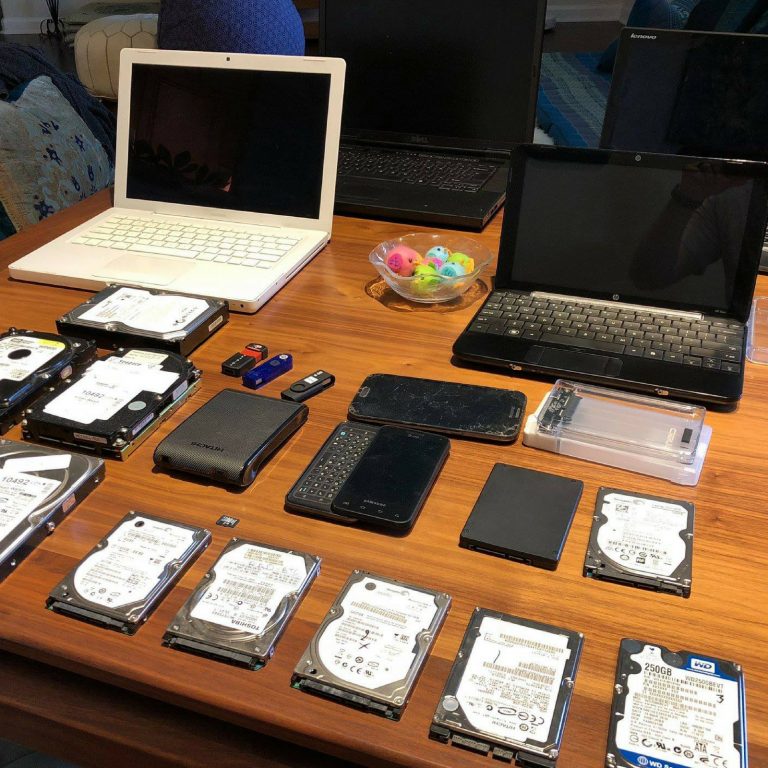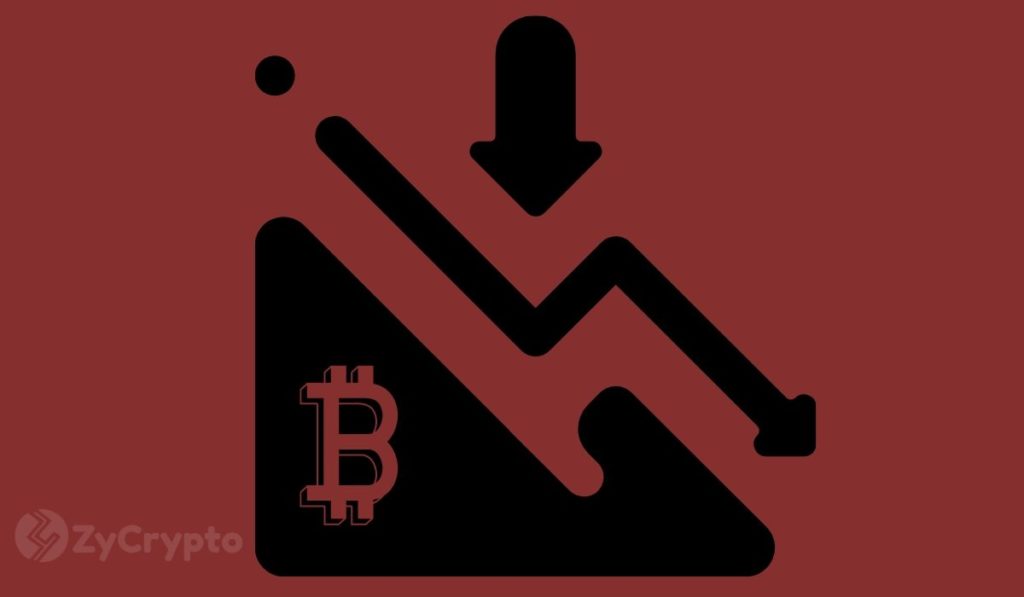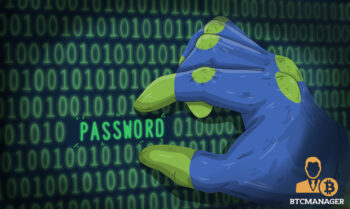
2018-8-26 23:30 |
David Veksler of Walletrecovery.info has seen it all. News.Bitcoin.com caught up with the man many in the ecosystem call upon when the ‘you-know-what’ hits the fan. Lost seeds. Fires. Seemingly unrecoverable hard drives. Mr. Veksler views the impossible as an interesting problem, a puzzle to crack. As more folks onboard into cryptocurrency, and as prices inch up, there is a lot at stake when things go wrong with a wallet holding precious digital coins.
Also read: $1.1 Million Landmark Crypto Fraud Case Establishes CFTC Jurisdiction
Crypto Wallet Recovery Comes in Many FormsNews.bitcoin.com (BC): Let’s jump right into it. What are some instances where cryptocurrency recovery seemed doomed?
David Veksler (DV): The family of an early Bitcoin enthusiast who died in a farm accident asked me to recover his Bitcoin fortune. I had to [search] through the entirety of his digital life to find his Bitcoin wallet backup. Several of his laptops had been burned in a fire and the data on the drives had to be extracted from the burned out shells.
[In another instance a] customer forgot the password to his Doge wallet. All he remembered was that the password was a Doge meme. I wrote a Doge meme generator which created a database of every possible Doge meme (over 8 million). This wasn’t especially hard, just a fun project.
Most cryptocurrencies based on Bitcoin Core use a BerkeleyDB database to store the wallet data. Many of my cases involve recovering private keys from a corrupt database. Sometimes my existing tools can directly export the keys from the database file. My most difficult recovery involved an especially corrupt Litecoin database. I had to compile a custom build of the BerkeleyDB tools to reconstruct the wallet enough for it to be salvaged.
BC: Wow. How did you get into cryptocurrency initially?
DV: In 2013, I partnered with a friend in China to build a Bitcoin exchange. I was invited to join this project based on my software architecture and stock market trading experience, not because of any particular interest in Bitcoin. (I had briefly tried Bitcoin mining back in 2010 but left my gaming desktop behind when I moved to China.) Building an exchange was a rapid and deep dive into the crypto community. At the peak of the bubble in December 2013, I attended a Bitcoin meetup in Shanghai. I met a number of “crypto celebrities” such as Roger Ver and was inspired by their belief in the world-changing potential of Bitcoin. There were in it for the long haul, and not just out to make a quick buck.
BC: So, then, what eventually drove you to start a wallet recovery business?
DV: Jeffrey Tucker and I have worked on various projects together since 2003. He forwarded a request for help to me because he knew that I have a strong background in crypto. I offered to recover my first wallet on a whim. Once my client had sent me their wallet, I was able to complete the recovery within 30 minutes and the client was very happy.
The idea to turn my experience into a business came from my wife. Most recoveries are technically straightforward – the most the most difficult part is gaining the customer’s trust. I knew that my personal brand and marketing skill would give me an edge here. I also discovered that my competitors did not offer a solid legal contract or in-person meeting with customers, and I could offer additional assurance by being the first to offer both.
BC: Is at least part of the problem in cases brought to you the fact wallets and general crypto software is just too clunky, not user-friendly enough? Do you think that’s going to change for the better?
DV: Yes, absolutely. We can view cryptocurrency development in three stages: discovery, infrastructure, and adoption. The discovery stage was from 2008-2013 when the community identified the basic concepts and tools of cryptocurrencies. The infrastructure stage started around the time that people realized the need to build alternatives to the failed Mt Gox exchange in 2013. Once the mature infrastructure is in place for cryptocurrencies, the stage will be set mass adoption. This infrastructure includes foolproof custody solutions for consumers, trusted intermediaries, and a diverse network of vendors who accept Bitcoin. That might drive me out of business, but on the other hand, when billions of people start using Bitcoin, some users will inevitably find ways to make mistakes.
BC: Can you recommend some wallets you find more secure than others?
DV: Yes. Without a doubt, hardware wallets are far more secure than any software wallet. Both the Trezor and Ledger Nano are superior in safety to any software-based wallet. Generally, both these are fairly secure and foolproof to use. However, I have worked with many customers who nevertheless lost or had their coins stolen from these wallets, so it is important to use them properly and keep in mind that hardware wallets are only safe if used properly. One customer had printed out his seed words but was missing several due to incorrectly set page margins. Another customer’s funds had been stolen because the customer had entered his words into notepad on his computer to print them out, and promptly had his Bitcoin stolen due to a keylogger. A customer stored his recovery word card in his jeans. The card was destroyed when the jeans had been laundered, which he only discovered months later when updating his wallet firmware.
BC: I get the feeling you encounter many of the same scams over and over again. Can you reveal the most common scams to help readers steer clear?
DV: Fake mining contracts: “mining contracts” which offered fantastic payouts, such as doubling your money in 10 hours. After sending the “mining company” Bitcoin, they would either disappear or usually ask for more money to unlock funds. Some “mining services” send a public address as proof of payment, or hold “mining profits” in a web wallet which cannot be withdrawn from. [See screenshot below]
Scam screenshot.Malicious wallet software: wallet software that sends private keys to a central server, which steals the victim’s coins. “Electrum Pro” was a notorious example, as electrum.org is a real wallet, and electrum.com hosted a malicious wallet which stole victim’s Bitcoin.
Fake forking services: these are services which promise to help users claim their forked Bitcoin Cash, Bitcoin Gold, Bitcoin Private, etc. Once the seed or private keys were entered, they disappear with the funds. Some customers had Bitcoin stolen from their hardware wallets because they did not realize that their recovery seed could be used to steal their Bitcoin.
Fraudulent exchanges: Many people are confused about where they store their legitimately purchased Bitcoin, or how Bitcoin is created and distributed. Malicious vendors take advantage of them by either claiming to sell cryptocurrency or simply announce that the recipient has coins which they forgot to claim. In some cases, they act like an advance-fee scam, where the victim has to pay upfront to collect their non-existent wallets. In other cases, the exchange takes payments (usually a credit card) for Bitcoin but makes withdrawing Bitcoin to a private wallet difficult or simply obscure. Many people are not aware of the importance of holding their own private keys, and leave their wallets with a third party for years until it disappears (as with Mt Gox).
Wallets for sale: scammers who sell cryptocurrency wallets with coins that are not spendable. Sometimes wallets are sold with the claim that the owners “forgot” the password for 5% of the value. (Many people assume that all cryptographic passwords can be broken if with enough skill, persistence, or hardware and ask me to do the hard work.) In other cases, wallets are sold to buyers who do not realize the proper way to transfer cryptocurrency to their personal address. Until very recently, Blockchain.info would reflect the watch-only (only the public address is stored) addresses in the total balance, which enabled the fraudulent sale of thousands of empty wallets with watch-only addresses.
Have you ever used a wallet recovery service? Share your thoughts in the comments section below.
Disclaimer: Bitcoin.com does not endorse nor support this product/service. Readers should do their own due diligence before taking any actions related to the mentioned company or any of its affiliates or services. Bitcoin.com is not responsible, directly or indirectly, for any damage or loss caused or alleged to be caused by or in connection with the use of or reliance on any content, goods or services mentioned in this interview.
Images via David Veksler.
Be sure to check out the podcast, Blockchain 2025; latest episode here. Want to create your own secure cold storage paper wallet? Check our tools section.
The post Bitcoin Lost: The Heroic and Maddening World of Crypto Wallet Recovery appeared first on Bitcoin News.
origin »Bitcoin price in Telegram @btc_price_every_hour
Bitcoin (BTC) на Currencies.ru
|
|


















